The Words That Made Us
Revisit key constitutional questions through the lens of history and law.
July 3–7, 2023
Washington, DC
In the third week of Political Studies, fellows will consider the liberal tradition and its expression in America. The first section will consider the question of American national character through a close reading of Alexis de Tocqueville’s Democracy in America. The second section will take a more wide-ranging approach—with selections from Burke, Tocqueville, the Federalist, and contemporary thinkers—to reflect on the moral content of liberalism.
Both courses will engage great champions and critics of liberalism to understand the strengths and weaknesses of our political and social order. Fellows will examine how liberalism rightly understood can promote individual freedom amid moral order, and what might be required today to sustain (or revive) our free society.
Images: Centennial mirror, poster commemorating 100 years of Independence of the United States
Yuval Levin on creating unity in a diverse society
This course is part of our residential Political Studies Program. Fellows participate in morning seminars and meet prominent men and women in public life over afternoon and evening sessions. Up to 36 fellows will be selected.

Yuval Levin is a Resident Scholar and Director of Social, Cultural, and Constitutional Studies at the American Enterprise Institute and the Editor of National Affairs magazine. Mr. Levin served on the White House domestic policy staff under President George W. Bush.

Yuval Levin is a Resident Scholar and Director of Social, Cultural, and Constitutional Studies at the American Enterprise Institute (AEI) and the founding Editor of National Affairs magazine. Prior to joining AEI, he was Vice President of the Ethics and Public Policy Center and EPPC’s Hertog Fellow.
He is a Contributing Editor of National Review and The Weekly Standard and a Senior Editor of EPPC’s journal The New Atlantis. Author and editor of numerous books, including The Great Debate: Edmund Burke, Thomas Paine, and the Birth of Right and Left (2013), The Fractured Republic: Renewing America’s Social Contract in the Age of Individualism (2016), and he most recently published A Time to Build: From Family and Community to Congress and the Campus, How Recommitting to Our Institutions Can Revive the American Dream (2020). His essays and articles have appeared in numerous publications including The New York Times, The Washington Post, The Wall Street Journal, Commentary, and others.
Before joining EPPC, Mr. Levin served on the White House domestic policy staff under President George W. Bush. He has also been Executive Director of the President’s Council on Bioethics and a congressional staffer. He holds a B.A. from American University and a Ph.D. from the University of Chicago. He is a recipient of a 2013 Bradley Prize for intellectual achievement.
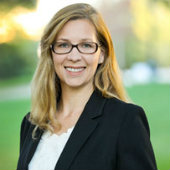
Jenna Silber Storey is a senior fellow in the Social, Cultural, and Constitutional Studies department at the American Enterprise Institute (AEI), and co-director of AEI’s Center for the Future of the American University. She is concurrently an SNF Agora Fellow at Johns Hopkins University, and a research fellow at the Civitas Institute at the University of Texas at Austin. She also serves on the executive committee of the Alliance for Civics in the Academy.

Jenna Silber Storey is a senior fellow in the Social, Cultural, and Constitutional Studies department at the American Enterprise Institute (AEI), and co-director of AEI’s Center for the Future of the American University. She is concurrently an SNF Agora Fellow at Johns Hopkins University, and a research fellow at the Civitas Institute at the University of Texas at Austin. She also serves on the executive committee of the Alliance for Civics in the Academy.
Dr. Storey’s work concentrates on liberal education, civic thought, and the relationship between the university and society. She has developed a series of initiatives in partnership with Johns Hopkins University to provide pathways for collaboration between JHU faculty and AEI scholars, to support ideologically heterodox students who aspire to careers in academia, and to host discussions to explore the emerging academic field of civic thought and practice.
Previously, Dr. Storey was assistant professor in politics and international affairs and the executive director of the Tocqueville Program at Furman University. In addition to Furman University, she has taught at the University of Chicago; the Buckley Program at Yale University; the Hertog Summer Studies Program in Washington, DC; and the Tikvah Fund in Princeton, New Jersey. Earlier she worked as executive assistant to the superintendent for the Boston University–Chelsea Schools partnership. She served as a board member of Veritas Preparatory School in Greenville, South Carolina, from 2019 to 2021, and now serves as a board member of the St. Jerome Institute in Washington, DC, the Center for Constitutional Liberty at Benedictine College, and the Honors College at Tulsa University.
Dr. Storey is the coauthor, with her husband, Benjamin Storey, of Why We Are Restless: On the Modern Quest for Contentment (Princeton University Press, 2021). Together, the Storeys are working on a book titled The Art of Choosing: How Liberal Education Should Prepare You for Life.
Dr. Storey’s work has been published in media outlets such as the New York Times, the Wall Street Journal, the Washington Post, National Affairs, Humanities, the Boston Globe, National Review, the Chronicle of Higher Education, Inside Higher Ed, American Purpose, Society, the New Atlantis, City Journal, the Claremont Review of Books, and First Things. She has lectured at institutions such as Oxford University, West Point, the City College of New York, American University, the University of Notre Dame, the Institute for Classical Education, and the American Council of Trustees and Alumni. She has also delivered papers at the American Political Science Association conference and other disciplinary conferences.
Dr. Storey has a PhD from the University of Chicago’s Committee on Social Thought and a BA from the University Professors Program at Boston University. She spent time in Germany as a visiting student at the University of Tübingen and as an exchange student at Dresden University.
Recommended Site: Tocqueville, The Great Thinkers
Readings:
Readings:
Readings:
Readings:
Readings:
Discussion Questions:
Readings:
Discussion Questions:
Readings:
Discussion Questions:
Readings:
Discussion Questions:
Readings:
Discussion Questions:
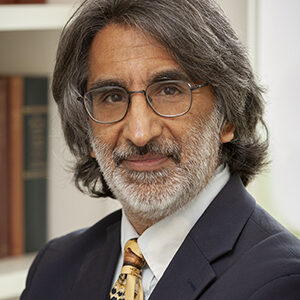
Akhil Reed Amar
Akhil Reed Amar is Sterling Professor of Law and Political Science at Yale University, where he teaches constitutional law in both Yale College and Yale Law School. He is Yale’s only currently active professor to have won the University’s unofficial triple crown — the Sterling Chair for scholarship, the DeVane Medal for teaching, and the Lamar Award for alumni service. He hosts a weekly podcast, Amarica’s Constitution.

Adam J. White
Adam J. White is the Laurence H. Silberman Chair in Constitutional Governance and senior fellow at the American Enterprise Institute, where he focuses on the Supreme Court and the administrative state. Concurrently, he codirects the Antonin Scalia Law School’s C. Boyden Gray Center for the Study of the Administrative State.

Cheryl Miller
Cheryl Miller is executive director at the Hertog Foundation. Previously, she served as deputy director of research in the Office of Presidential Speechwriting and as research assistant to David Brooks at The New York Times. Her reviews and commentary have appeared in such publications as The Wall Street Journal, Commentary, and The Weekly Standard. She graduated from the University of Dallas with Bachelor of Arts degrees in English and Politics.
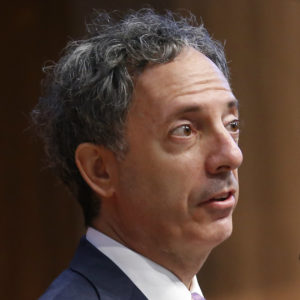
Peter Berkowitz
Peter Berkowitz is the Tad and Dianne Taube Senior Fellow at the Hoover Institution, Stanford University. He studies and writes about, among other things, constitutional government, conservatism and progressivism in America, liberal education, national security and law, and Middle East politics.
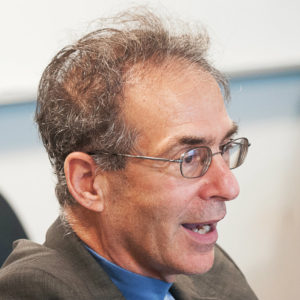
James W. Ceaser
James W. Ceaser is Harry F. Byrd Professor of Politics at the University of Virginia, where he has taught since 1976, and a senior fellow at the Hoover Institution. He has written several books on American politics and political thought, including Presidential Selection and Liberal Democracy and Political Science.
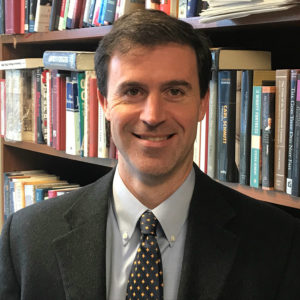
Richard M. Reinsch II
Richard M. Reinsch II is Editor-in-Chief and Director of Publications at AIER. He is coauthor, with the late Peter A. Lawler, of A Constitution in Full: The Unwritten Foundation of American Liberty.

Bryan Garsten
Bryan Garsten is Professor of Political Science at Yale University. He writes on questions about political rhetoric and deliberation, the meaning of representative government, the relationship of politics and religion, and the place of emotions in political life.
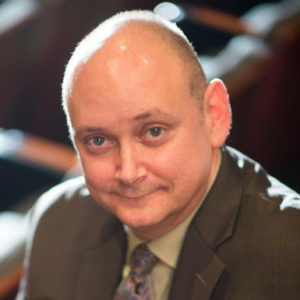
Greg Weiner
Greg Weiner is President of Assumption University and founding director of the Daniel Patrick Moynihan Center for Scholarship and Statesmanship. He is the author of American Burke: The Uncommon Liberalism of Daniel Patrick Moynihan and Old Whigs: Burke, Lincoln and the Politics of Prudence.